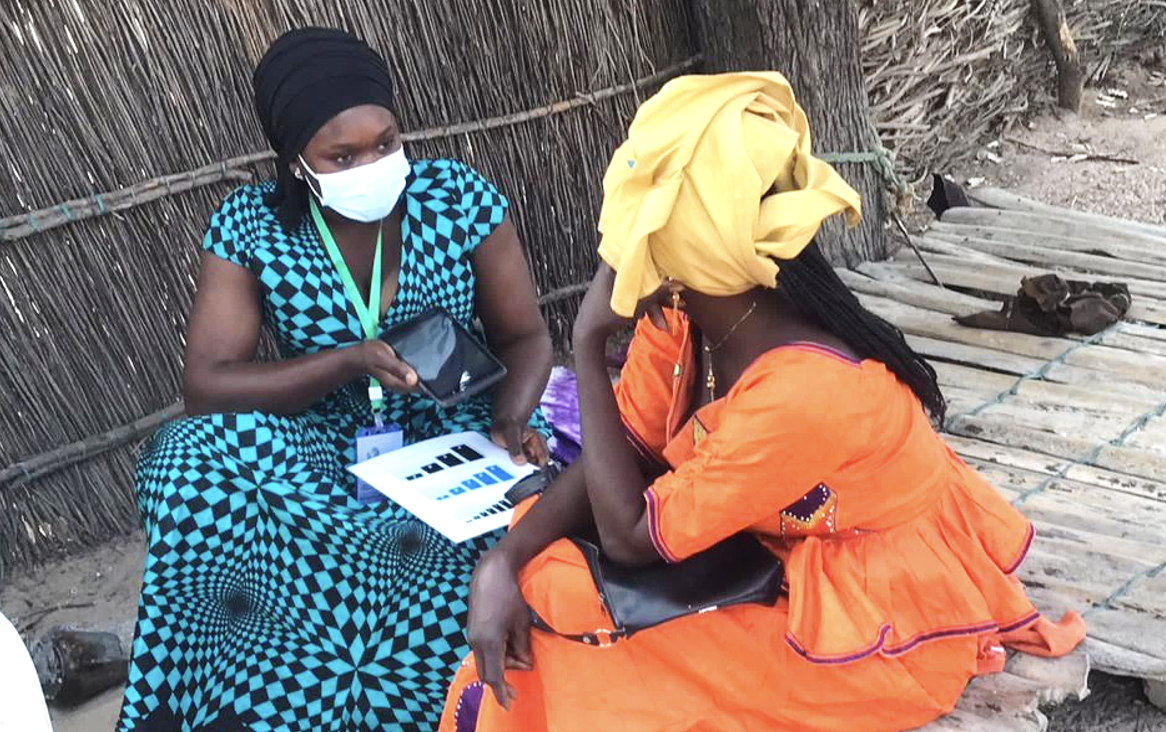Involving influential men’s groups to promote maternal and child nutrition practices increased diet diversity and egg consumption despite rising insecurity in the Sahel
Objectives: A two-arm cluster randomized trial was designed to compare 2 approaches of behavior change communication for improved nutrition and women’s empowerment practices. Both intervention arms received monthly training sessions using village saving and loans associations (VSLA) as main delivery platform, while in one arm, influential men’s groups (called EBENE) were also trained to promote improved nutrition and women’s empowerment practices.
Methods: Data were collected after one year of implementation in June and August 2023 through phone surveys in a composite sample of women pre-identified before the intervention including members of VSLA, women interested in VSLA and women of the general population. Mixed-effects regression models using fixed effects for treatment exposure and random effects at cluster level, were used to assess differential effects of the interventions on program participation, and knowledge and practices related to diets and women’s empowerment. Adjusted models estimated the effects of insecurity and of the EBENE intervention in the context of insecurity, adjusting for baseline characteristics associated to insecurity prior to its onset, to account for its non-random nature.
Results: Unadjusted analyses found participation rates of 44% and 38% for training on nutrition and gender respectively, with no significant differences between intervention groups. The EBENE intervention was found to increase the likelihood that women felt encouraged by men to improve dietary practices and that women and children consumed poultry and eggs. Adjusted analyses suggested that though insecurity had a negative effect on program participation and diet diversity, the EBENE intervention had a protective effect on diet diversity in areas with higher insecurity. The EBENE intervention was found to have protective effects on women’s mobility, group membership and participation in decisions related to poultry production.
Conclusions: In the context of increasing insecurity, nutrition and women’s empowerment behavior change promoted through VSLA platforms can be boosted by engaging influential men’s to promote improved practices. Further research is needed to better understand the costs and mechanisms involved.
Authors
Diop, Loty; Gelli, Aulo; Dione, Malick; Sow, Doulo; Pedehombga, Abdoulaye; Some, Henri; Ganaba, Rasmané; Tranchant, Jean Pierre; Heckert, Jessica; Becquey, Elodie
Citation
Diop, Loty; Gelli, Aulo; Dione, Malick; Sow, Doulo; Pedehombga, Abdoulaye; Some, Henri; Ganaba, Rasmané; Tranchant, Jean Pierre; Heckert, Jessica; and Becquey, Elodie. 2024. Involving influential men’s groups to promote maternal and child nutrition practices increased diet diversity and egg consumption despite rising insecurity in the Sahel. Current Developments in Nutrition 8 (Supplement 2): 103240. https://doi.org/10.1016/j.cdnut.2024.103240
Keywords
Sahel; Southern Africa; Social Groups; Men; Maternal and Child Health; Nutrition; Dietary Diversity; Eggs; Behaviour; Women’s Empowerment
Project
Agriculture for Nutrition and Health









